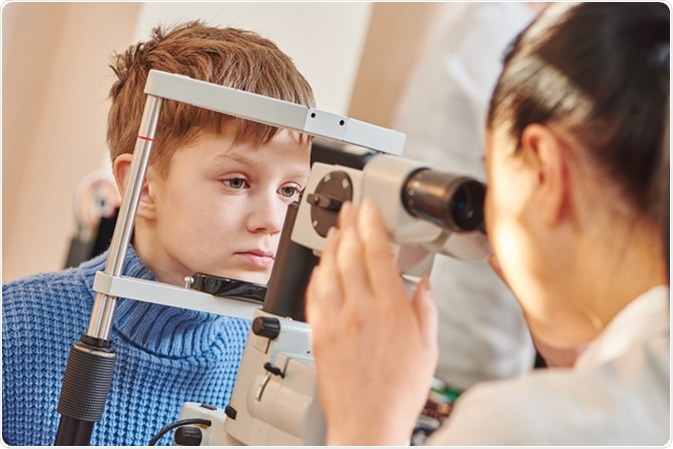Is Refractive Surgical Procedure Right for You? Variables to Think About for Better Eyecare
In the world of eye treatment, the decision to undergo refractive surgical procedure is a substantial one that requires thoughtful factor to consider. From the complexities of one's ocular health and wellness to the details of individual assumptions and everyday practices, each aspect holds value in the broader landscape of refractive surgery candidacy.
Eye Health Examination
When thinking about refractive surgery, a comprehensive eye health and wellness assessment is vital to evaluate the viability of the procedure for every person. eye doctors in andalusia. This examination involves a collection of examinations and evaluations carried out by an eye care specialist to determine the general health of the eyes, the existence of any kind of underlying conditions, and the stability of the refractive mistake
During the analysis, numerous elements are taken into consideration, such as the patient's medical history, current eye prescription, corneal density, pupil dimension, and tear movie top quality. These assessments assist to identify any contraindications to refractive surgical treatment, such as corneal abnormalities, cataracts, or neglected eye infections. In addition, the assessment helps to take care of individual expectations regarding the prospective outcomes of the surgery based upon their unique eye features.
Ultimately, the eye health and wellness assessment is essential in guaranteeing the security and performance of refractive surgery, as it offers important understandings right into the person's eye wellness standing and helps identify the most appropriate therapy choices for achieving ideal aesthetic results. (cardiologist andalusia)
Lifestyle Assessment
An extensive way of life evaluation is important in figuring out the viability of refractive surgical treatment for an individual's visual adjustment needs. Way of living variables such as line of work, leisure activities, and everyday activities play an important role in the decision-making process pertaining to refractive surgical procedure. People with careers that entail a high degree of physical activity or direct exposure to ecological aspects might have various visual requirements compared to those with less active workdesk jobs. Understanding just how a person's lifestyle may affect their vision post-surgery is vital for managing assumptions and guaranteeing optimum results.
Additionally, way of life routines such as sporting activities involvement, outside activities, or even skincare routines can influence the recovery procedure and general success of refractive surgical treatment. By carrying out a detailed lifestyle analysis, eye treatment specialists can tailor their suggestions and treatment strategies to fulfill the unique demands of each person, inevitably leading to enhanced visual outcomes and contentment.
Assumption Positioning

Establishing sensible expectations involves thorough pre-operative discussions between the ophthalmologist and the person. The specialist ought to transparently communicate the possible dangers, benefits, and limitations of the treatment (cardiologist andalusia). People need to comprehend that while several individuals accomplish 20/20 vision or much better following refractive surgical procedure, some may still call for glasses for sure activities like analysis or driving at night. Taking care of these expectations helps stop disappointment and frustration post-surgery, resulting in a more positive total experience for the individual.
Danger Evaluation

Variables that may raise the risk of difficulties include age, specific clinical conditions like autoimmune diseases, unstable vision prescription, slim corneas, and impractical individual expectations. In addition, choosing a proficient and knowledgeable cosmetic surgeon, adhering to pre and post-operative treatment instructions vigilantly, and revealing any type of relevant medical background can aid minimize risks.
To minimize the probability of difficulties, ophthalmologists conduct detailed pre-operative evaluations to determine any type of contraindications to surgical procedure. They additionally go over the possible threats and benefits with patients during the examination procedure. By participating in open interaction and shared decision-making, both the client and the eye doctor can collaborate to figure out if refractive surgical procedure is the right option based on private danger profiles and preferred results.
Examination Value
Taking into consideration the essential role of informed decision-making in assessing risks and potential complications in refractive surgical procedure, the appointment procedure holds substantial value in directing people in the direction of ideal outcomes. During the examination, the ophthalmologist evaluates the client's eye health, refractive mistakes, and total suitability for surgical treatment. This initial analysis is critical in identifying the most ideal procedure for each person, taking into consideration elements such as corneal thickness, student size, the original source and existing eye problems.
Additionally, the assessment works as a chance for patients to review their expectations, concerns, and any type of questions they might have concerning the surgical procedure. Clear interaction between the person and the specialist is necessary to ensure practical assumptions and an extensive understanding of the possible dangers and advantages involved.
In addition, the examination allows the doctor to discuss the various surgical choices readily available, their respective results, and the post-operative treatment required. This comprehensive discussion encourages clients to make well-informed choices regarding their eye care, leading to far better complete satisfaction and end results post-surgery.
Conclusion
In final thought, people considering refractive surgical treatment ought to undertake a comprehensive eye health and wellness examination, assess their lifestyle practices, straighten their assumptions with possible results, assess the associated risks, and focus on consultations with eye care professionals. These elements play a critical function in determining the suitability of refractive surgery for each individual, guaranteeing ideal results and fulfillment with the treatment.
Clients considering refractive surgery frequently have high click here for more expectations regarding the go to this website outcomes, anticipating excellent vision without the demand for glasses or call lenses. While refractive surgical treatment can considerably enhance vision and decrease dependency on visual help, it is critical for individuals to comprehend that results might vary based on private aspects such as the degree of refractive error, corneal thickness, and total eye wellness.
By engaging in open communication and shared decision-making, both the client and the ophthalmologist can work with each other to establish if refractive surgical treatment is the best selection based on private risk accounts and preferred outcomes.
Taking into consideration the important function of educated decision-making in examining risks and possible complications in refractive surgical procedure, the appointment procedure holds significant value in directing people towards ideal results. Throughout the examination, the ophthalmologist examines the client's eye wellness, refractive mistakes, and overall viability for surgical procedure.